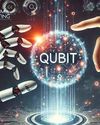
In the ever-evolving landscape of mobile development, choosing the right framework can make or break your project. While native apps offer the pinnacle of performance and platform-specific features, their development demands significant resources and expertise. Conversely, web apps are known for their cross-platform accessibility and quick development cycles, but often fall short of the native experience.
This is where Onsen UI comes into play — a versatile, open source framework that bridges the gap between native and web technologies for building captivating and functional hybrid mobile apps. By leveraging the power of HTML, CSS, and JavaScript along with Apache Cordova’s crossplatform prowess, Onsen UI enables developers to create stunning mobile applications that run flawlessly on Android, iOS, and even web browsers, all with a single codebase.
What is Onsen UI?
Onsen UI is an open source frontend framework specifically designed for building mobile and hybrid web applications. It provides a comprehensive set of UI components and tools that facilitate the development of apps that look and feel native on both iOS and Android platforms. Onsen UI’s versatility and ease of use make it a popular choice among developers who aim to deliver high-quality mobile applications efficiently.
Onsen UI’s core value lies in its ability to blend native aesthetics with the ease of web development. It’s more than just a framework — it’s a carefully curated suite of components and tools that allow developers to quickly craft engaging and visually rich mobile user interfaces, designed to mimic the native experience on both Android and iOS.
Core advantages of Onsen UI
This story is from the August 2024 edition of Open Source For You.
Start your 7-day Magzter GOLD free trial to access thousands of curated premium stories, and 9,000+ magazines and newspapers.
Already a subscriber ? Sign In
This story is from the August 2024 edition of Open Source For You.
Start your 7-day Magzter GOLD free trial to access thousands of curated premium stories, and 9,000+ magazines and newspapers.
Already a subscriber? Sign In

Amazon Bedrock: A Boon for the Financial Services Industry
Amazon Bedrock is a fully managed service that provides access to foundation models from top AI providers, enabling organisations to build and scale generative AI applications. It is specifically designed to bring AI solutions to the financial sector. Let's explore all that it can do...

Quantum-Safe VPNs: The Future of Secure Communication
As quantum computing continues to advance, it poses a significant threat to traditional cryptographic algorithms that secure our digital communications. Virtual private networks (VPNs), which rely heavily on encryption, are particularly vulnerable. Quantum-safe VPNs utilise post-quantum cryptographic algorithms to protect against quantum attacks.

Popular Open Source Toolkits for Quantum Machine Learning
Quantum machine learning is becoming increasingly popular due to its ability to solve the complex problems of the AI age. Here are a few open source libraries and frameworks that help with quantum computations.

Quantum Computing: Harnessing Open Source for Innovation and Accessibility
We explore how open source initiatives are shaping the future of quantum computing, making it more accessible and driving innovation through collaboration.

How Quantum Computing Differs from Classical Computing
Despite being in its infancy, quantum computing has numerous potential applications in modelling, cybersecurity, AI/ML, and other fields. But how do quantum and classical computing compare with each other? Let's find out...

From Bits to Qubits: The Growth Story of Quantum Computing
Quantum computing may still be in the early stages of evolution, but its potential impact on everyday life is significant. We delve into the key concepts behind it, the reasons for its rapid growth, and how global advancements are shaping its future.

Pytket: A Comprehensive Guide to Quantum Circuit Design
Pytket stands out as a powerful toolkit in the realm of quantum computing, offering a suite of features that cater to both researchers and industry practitioners. Its key strengths include optimisation, platform-agnostic support, flexible quantum circuit design and hybrid algorithm support. These features make Pytket a versatile tool for various quantum computing applications, from machine learning and cryptography to optimisation problems in industrial settings.

Cirq: The Open Source Framework for Programming Quantum Computers
Explore the key features, capabilities, and impact of Cirq, an open source quantum computing framework developed by Google, on the quantum programming landscape.

The Role of Open Source in Accelerating Quantum AI
Here's an overview of how open source frameworks are being utilised to build quantum machine learning models, including quantum neural networks and quantum kernel methods. The challenges and future directions in the quantum AI landscape are also discussed.

Quantum Machine Learning: An Overview
Quantum machine learning (QML) is a burgeoning field at the intersection of quantum computing and artificial intelligence. In recent years, the integration of quantum mechanics with machine learning algorithms has sparked substantial interest among researchers and technologists alike. Here's a quick look at the essentials of creating quantum algorithms for AI models, their practical use cases on open source platforms, and best practices for implementing these advanced algorithms.